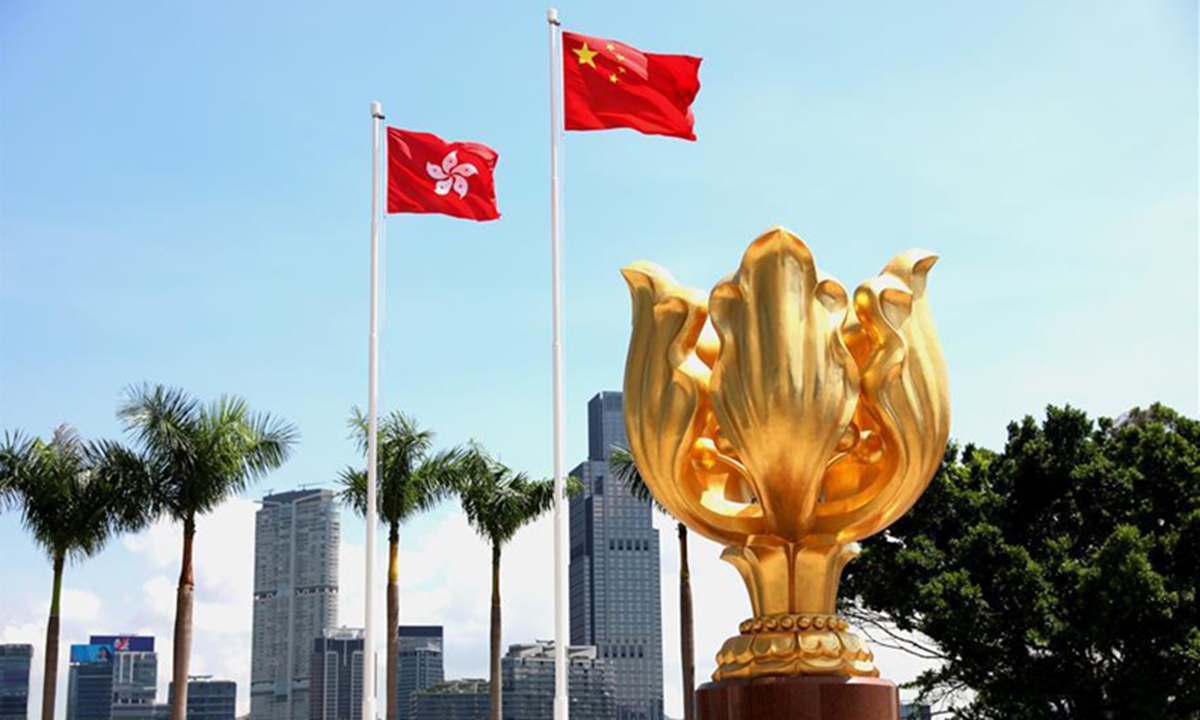Senior Hong Kong officials further clarify on Article 23 legislation, saying 'foreign interference offense' conviction has at least 3 elements

Hong Kong file photo
Senior local officials from the Hong Kong Special Administrative Region (HKSAR) made further clarifications on Sunday on the Article 23 legislation including public's criticism of local governance but rejecting deliberately provoking hatred, major conditions for the conviction of foreign interference offense, and materials related to the critical infrastructure falling into the scope of state secret.
When he was asked on a television program about whether criticizing Legislative Council (LegCo) members or district councilors would be illegal under the Article 23 legislation, Secretary for Security Chris Tang Ping-keung said it is difficult for him to comment on this matter without knowing the intent and consequences of the behavior.
He mentioned that providing feedback on the performance of public officials is entirely reasonable. Still, if such comments are delivered in a provocative, biased, or factually incorrect manner with the intent to incite hatred, there is a chance of violating the law.
Tang emphasized that the offense of "incitement to hatred" mentioned in the consultation paper of the Article 23 legislation is not a new concept, as related offenses are already covered in the existing Criminal Offenses Ordinance.
There have been relevant cases in court, including after the 2019 anti-extradition bill protests, where individuals were convicted of such offenses. He emphasized that the Article 23 aims to improve the legislation and address potential risks.
The Article 23 legislative proposal also suggests the addition of a new offense called "foreign interference offense," aimed at prohibiting cooperation with foreign forces to unlawfully interfere with government administration. Secretary for Justice Paul Lam Ting-kwok clarified on Sunday that the cooperation can be interpreted as obeying the instructions of foreign powers, accepting financial support, and acting as a proxy.
However, if, when commenting on HKSAR government concerning foreign affairs, individuals express their opinions and communicate within the boundaries of the law, without exaggeration, incitement, or threats, it should not be considered a violation of the law, Lam said.
A local Hong Kong scholar Johannes Chan Man-mun recently raised a question about COVID-19 origins investigation, providing an example involving cooperation between local universities and overseas institutions.
If the government believes a certain report to be erroneous or false, affecting public safety, or constituting a threat to national security, it might be considered a criminal offense, Chan said, noting that what the HKSAR government previously referred to as "malicious intent" often stems from differing viewpoints and perspectives, which are distinct from the accusation of falsehood.
In response, Lam said criminal offenses are related to objective facts, not expressions of opinions. Therefore, citizens should not be deemed criminals for expressing personal opinions.
He explained that, legally, a false statement pertains to factual issues, not opinions. He emphasized that he is discussing objective facts and further stressed that exaggerated examples should not be used to cause unnecessary societal concerns.
In reality, to convict someone of "foreign interference offense," at least three elements need to be satisfied, including clear means, cooperation with foreign powers' instructions or funding, and whether the behavior ultimately achieves the effect of interference, Lam said. "Therefore, normal communication activities typically should not pose any problems."
Lam explicitly stated that Article 23 does not prohibit communication, and its meaning should not be misconstrued. What the law prohibits is cooperation with foreign forces using improper means and with a specific intent, such as influencing elections or interfering with the LegCo's work. Normal communication should not be encompassed within criminal offenses, he said.
Foreign forces encompass foreign governments or political organizations, but academic institutions do not fall under the category of foreign forces, Tang further clarified.
When asked if environmental groups or labor organizations, after communicating with foreign entities, initiate further protest actions such as sit-in, whether it will be seen as a means of pressuring the government inappropriately, Tang said that if it's just a sit-in and a way to express opinions, he does not see it affect the functions of the LegCo.
Regarding the offense of theft of state secrets and espionage, when asked whether disclosing that steel bars were cut in the Hong Kong MTR project should be classified as revealing state secrets, Tang believes this is not a typical case.
If someone were to disclose the location and design plans of power facilities, allowing others the potential to attack these facilities, it could pose a threat to public safety. Therefore, information related to critical infrastructure could potentially fall within the category of state secrets, he said.
He also pointed out that matters affecting government reputation do not necessarily equate to threats to national security, for example, information in a research report about cutting steel bars and the location of control points in the railway system are separate issues.
Tang further emphasized that the consultation document suggests that Article 23 should also regulate "seemingly confidential information" to prevent legal gaps and to prevent individuals from using their positions as public officials or contractors to leak information, leading people to mistakenly believe that the content in question is confidential, thereby causing panic and potentially harming national security.
The HKSAR government is considering introducing measures in Article 23 of the Basic Law to ensure that law enforcement agencies have sufficient time to investigate national security cases, including extending the current 48-hour detention limit, while also preventing arrested individuals from having the opportunity to communicate with lawyers.
In the proposal for Article 23 legislation, there is no mention of penalties. Lam said that this consultation aims to discuss the elements of the offense and defense arguments.
Currently, the basis for the scope of charges, defense arguments, and other aspects of the offense remains unclear, so there is no proposed penalty at this time. However, reference to penalties in other jurisdictions suggests that the highest and most severe penalty would be life imprisonment, the official said.


